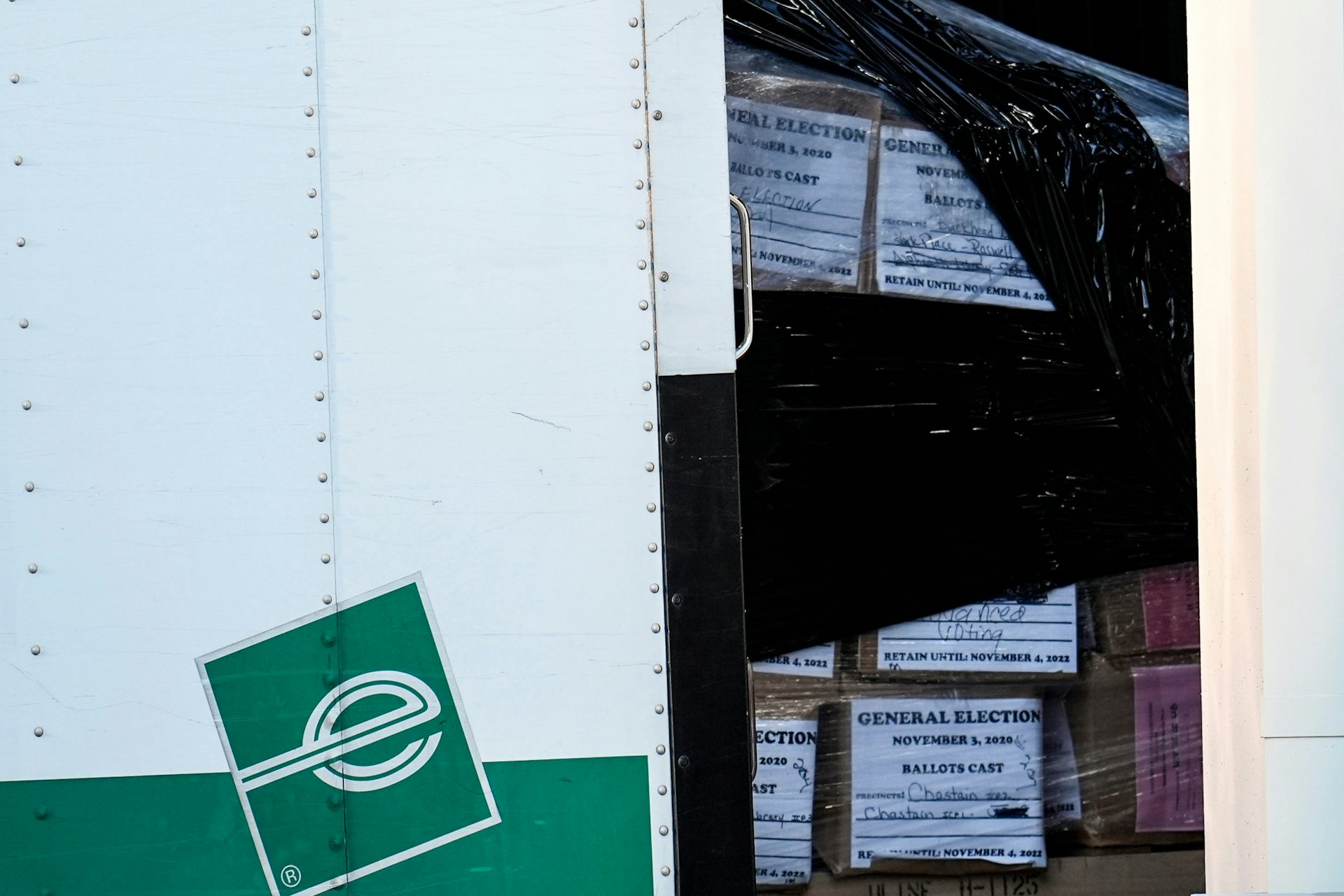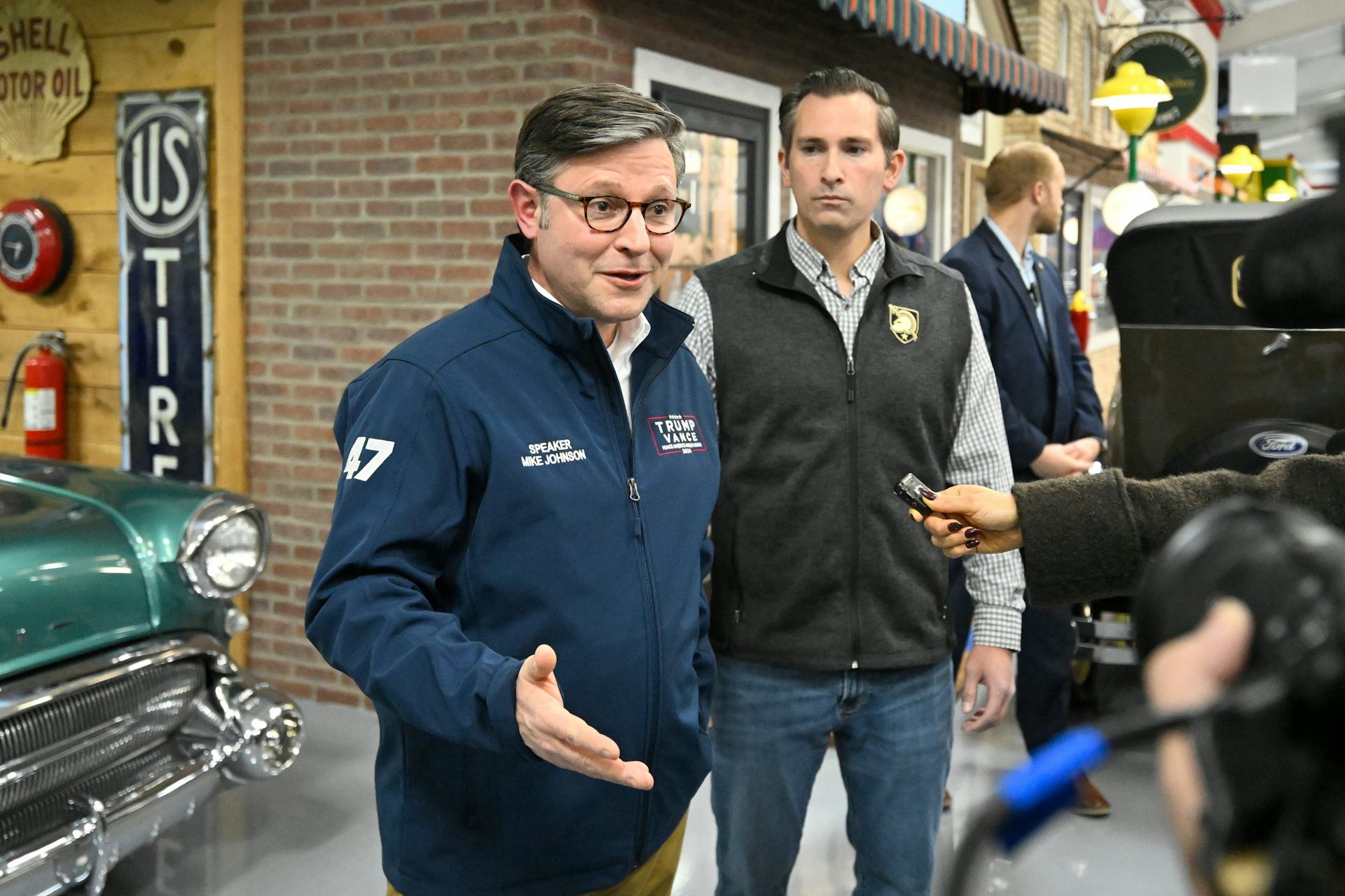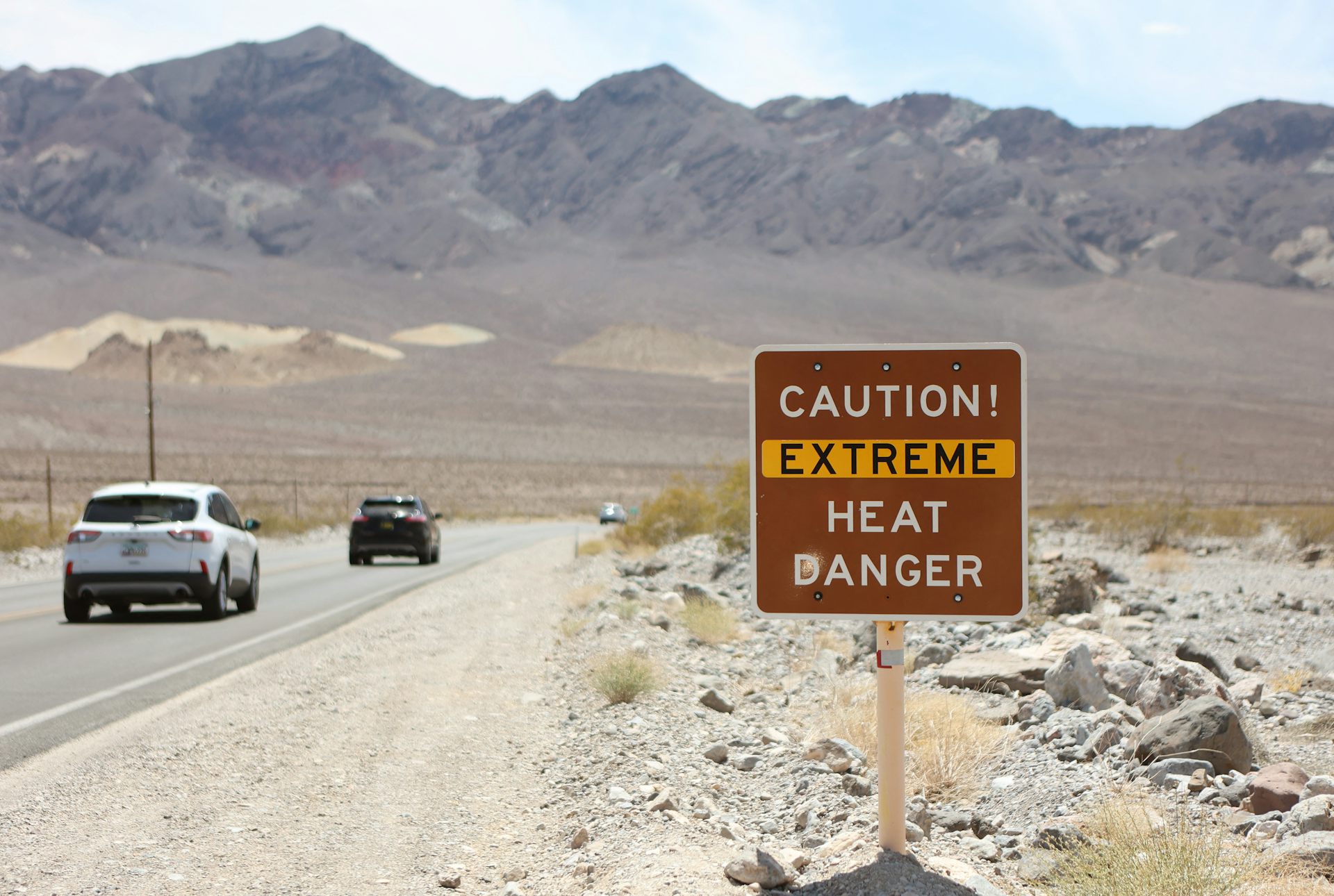Why Maduro is blocking Venezuela-bound humanitarian aid when so many people in his country need it
These shipments are rarely just about saving lives.
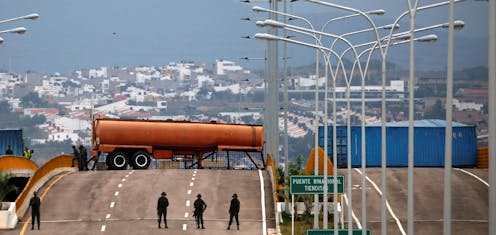
Relations between the United States and Venezuela have been strained since the late Hugo Chávez rose to power two decades ago. They got worse when the Trump administration recognized opposition leader Juan Guaidó as the South American country’s president instead of Chávez successor Nicolás Maduro in January 2019.
These tensions could become a full-blown crisis, as has become clear along the Venezuela-Colombia border, where Maduro is blocking the entry of U.S. humanitarian aid. The United States says it is sending US$20 million in food and medical supplies to alleviate suffering at a time when Venezuelans are experiencing widespread malnutrition and lack access to health care. Maduro contends that these shipments are a plot to meddle in his country’s internal affairs – a Trojan horse courtesy of Uncle Sam to undermine Venezuelan democracy.
Although there is no clear evidence of an ulterior motive, history does give Maduro reasons to be skeptical of U.S. intentions. As a political scientist who studies both the political ramifications of international assistance, and Venezuela’s growing instability, I find that humanitarian aid is rarely just about saving lives. In Venezuela, I believe that the U.S.-supplied aid may have substantial political consequences.
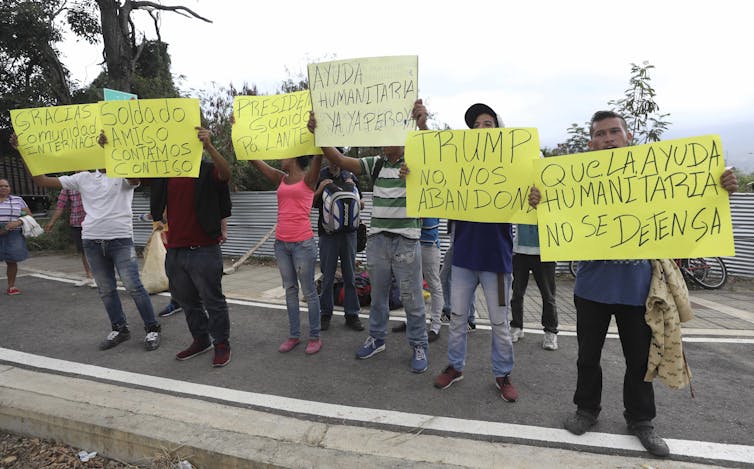
A foreign policy tool
USAID, the primary federal aid agency in the U.S., officially operates independently. However, in practice it has worked closely with the State Department, and the Trump administration discussed making it part of the department when Rex Tillerson served as secretary of state.
The U.S. government generally considers aid and development assistance as part of their broader foreign policy. The State Department officially calls USAID an “important contributor to the objectives of the National Security Strategy of the United States.” In other words, USAID’s work abroad is at least partially intended to safeguard American security and promote U.S. interests.
President Donald Trump recently told the UN General Assembly that the U.S. is “only going to give foreign aid to those who respect us and, frankly, are our friends,” a statement that appeared to be a threat to cut off American assistance to Guatemala, Honduras and El Salvador unless they curb the flow of U.S.-bound asylum-seekers and other immigrants.
The U.S. gives those three countries a total of about $450 million a year in foreign aid and the Trump administration has pledged additional funds to slow the flow of people across the border.
Using aid to advance the national interest is not new.
In 2001, when the war in Afghanistan got underway, the Bush administration used aid to complement the military effort to prevent terrorism. Because Afghanistan had harbored Osama bin Laden and others tied to the 9/11 attacks on the World Trade Center in New York, USAID got a broad mandate and billions of dollars to help win the hearts and minds of Afghans. That policy was essentially a bet that once military intervention had defused the hostilities, Afghans would have a more favorable view of the U.S. – reducing the risk that terrorists would use Afghanistan as a launching pad.
USAID has also played an explicit role in attempting to win hearts and minds in Iraq in the early 2000s, Vietnam in the 1960s and 1970s, and elsewhere.
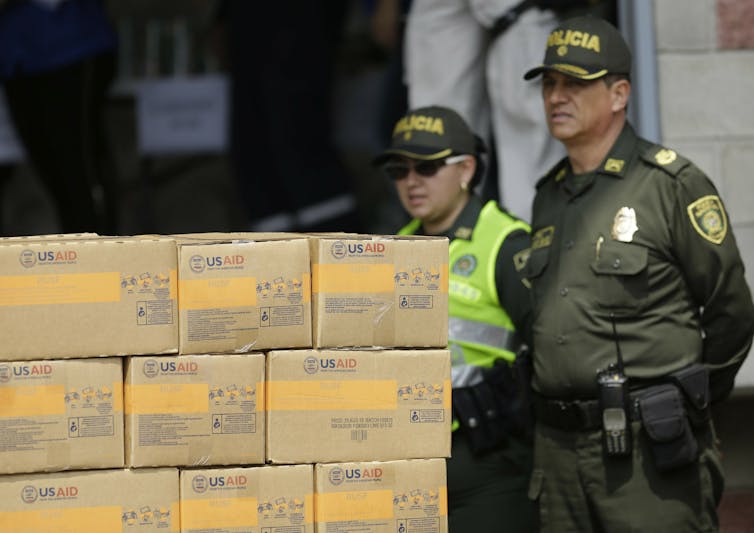
Aiding intervention
However, it is probably the agency’s history in Cuba that Maduro has on his mind.
In 2014, a year after Maduro succeeded Chávez, the Associated Press reported that USAID covertly funded and ran the Cuban social network ZunZuneo to help spur dissent in Cuba.
AP reporters identified a series of shell companies the U.S. government used to mask this intervention. They also referenced an internal document that purportedly outlined how the U.S. intended to use the ZunZuneo project to influence Cuban politics.
No other evidence, however, has surfaced to corroborate this story of alleged subversion. Instead, the U.S. government acknowledged funding the project. The program’s secrecy came about not for subversion, but to protect “practitioners and members of the public,” White House spokesman Jay Carney said at that time. To be sure, Cubans who admit to working for, or being sympathetic to the U.S., do run risks in a country that locks up some of its dissidents.
As Cuba is one of Venezuela’s most important allies, the Venezuelan media followed the ZunZuneo scandal closely. Venezuela denounced the U.S. for its role with the platform, also known as “Cuban Twitter,” so Maduro is no doubt watching out for what the U.S. may attempt in Venezuela through its use of foreign aid.
I have seen no clear evidence of U.S. intentions to use humanitarian aid to destabilize Venezuela, but USAID’s reputation and Venezuela’s own experience with the U.S. gives Maduro good reasons to fear the worst.
Applying leverage
Even if the Trump administration has only the best of intentions, it may not be in Maduro’s interest to let the aid across any of his country’s borders. Humanitarian aid inevitably creates winners and losers – some will reap the benefits of the aid, while others will not.
In a nation where two or more groups are vying for power, that can change the power dynamics. For Maduro, who is still in power, with the Venezuelan military behind him for the time being, any changes caused by the distribution of aid can only weaken his position politically. To Maduro, it is no doubt clear that Guaidó stands to gain most from the humanitarian aid reaching Venezuelans because he can champion the aid as a success of his shadow government.
Humanitarian aid can give the groups that get access to it and can control its distribution leverage against others. In Syria, food aid got into the hands of the Islamic State group, which used the aid to strengthen its rank-and-file fighters, and extort money from communities over which it had control. Food aid also affected the power of different sides in civil wars in Angola, Sudan and Ethiopia, among others.
In my view, the U.S., other nations and aid organizations must take care to avoid letting their assistance get politicized while ensuring that humanitarian assistance actually reaches and benefits the thousands of Venezuelans who need it. Otherwise, these shipments could further destabilize the country, making Venezuelans in need of aid in the first place even worse off.
Morten Wendelbo has received funding from USAID, for whom he has carried out a number of studies.
Read These Next
Atrocities take place in democratic nations as well as autocratic ones – our database has logged the
Forty years of data suggests atrocities are on the rise globally.
How a largely forgotten Supreme Court case can help prevent an executive branch takeover of federal
An FBI raid on a Georgia elections facility has sparked concern about Trump administration interference…
Do special election results spell doom for Republicans in 2026?
Special election results have anticipated recent midterm outcomes. With Democrats now overperforming,…



